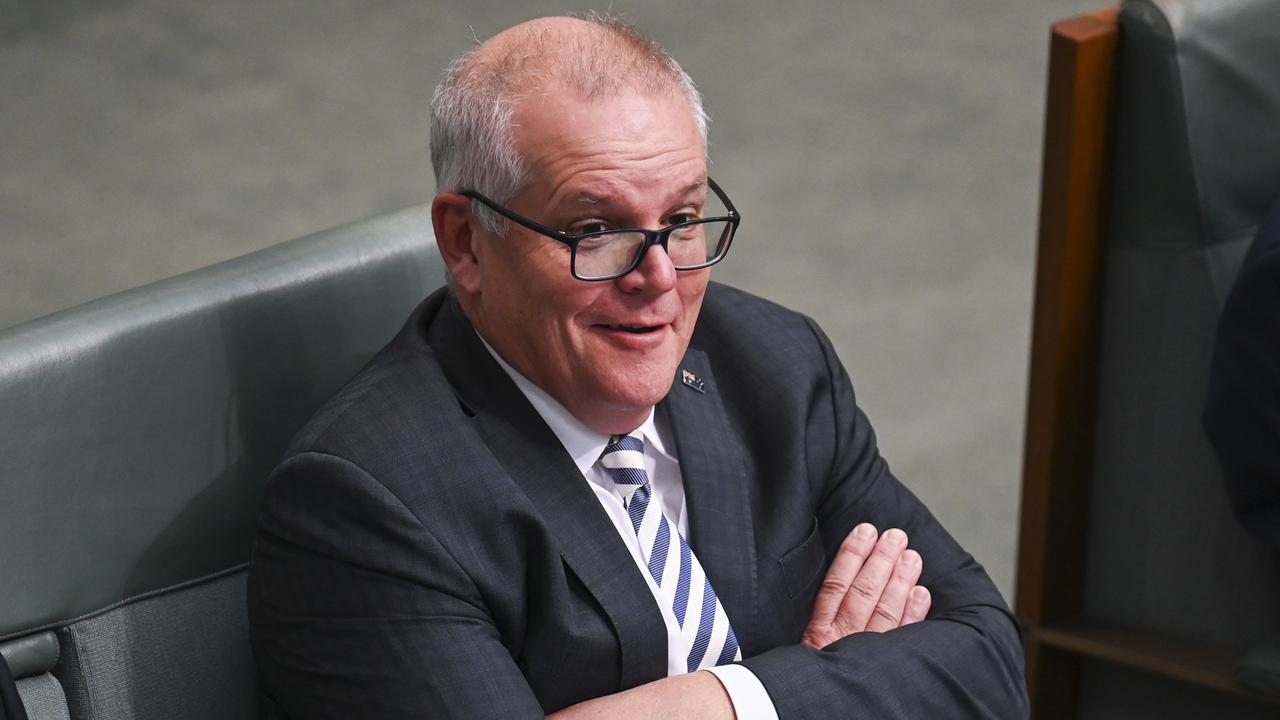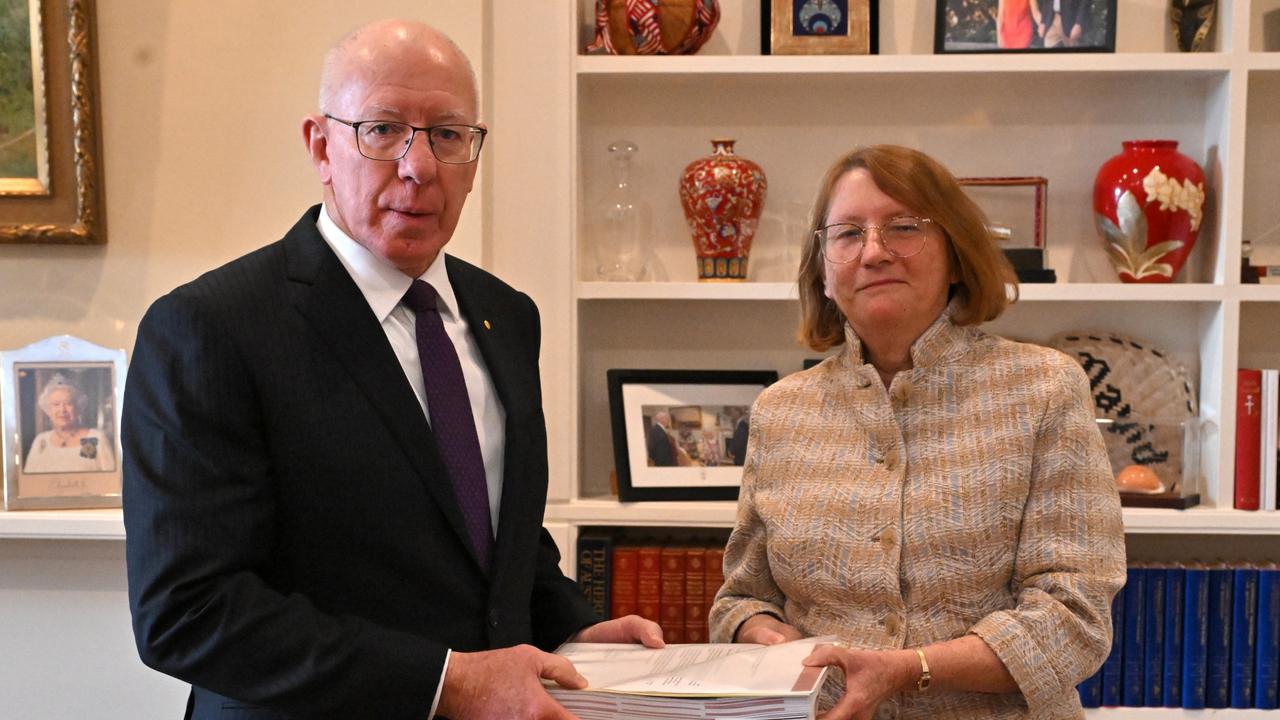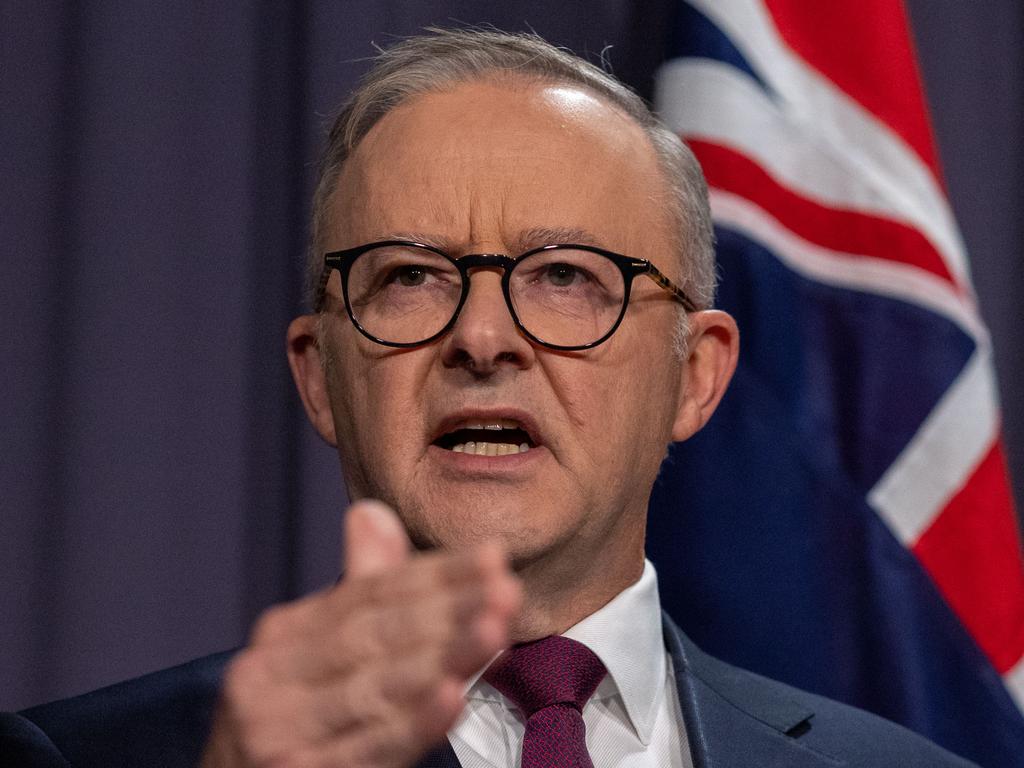Robodebt Royal Commission: Report leaves Scott Morrison in limbo
Former ministers and officials including Scott Morrison face an anxious wait after Robodebt royal commissioner Catherine Holmes referred 20 people to the new anti-corruption commission and the AFP.
Former ministers and officials including Scott Morrison face an anxious wait after Robodebt royal commissioner Catherine Holmes referred 20 people to the new National Anti-Corruption Commission (NACC) and the Australian Federal Police (AFP).
In the most scathing findings into the actions of a federal government ever made by a royal commission, Robodebt was branded “a crude and cruel mechanism” that was “neither fair nor legal”.
But her damning findings against individual former ministers and officials will be kept secret until after the NACC, AFP as well as the Australian Public Service Commission and the Law Society of the ACT have finished considering whether any “civil action or criminal prosecution” should take place.
Her decision to keep the names to be investigated confidential leaves the former PM as well as former ministers Marise Payne, Stuart Robert, Alan Tudge and Christian Porter as well as a number of officials involved in the scandal in limbo.
Peter Gordon, the solicitor who in 2020 launched a class action that won $112m for 400,000 victims of Robodebt said it had been one of “the most important royal commissions in the history of federation which had exposed systemic dishonesty and probable criminality at the highest levels of government”.

He said it showed those responsible had “conspired to unlawfully and dishonestly misappropriate other people’s money. You don’t have to be a High Court judge to know that is most usually criminal conduct.”
In her report the former Chief Justice of the Supreme Court of Queensland, found Robodebt “failed the public interest” and it was “remarkable how little interest there seems to have been in ensuring the Scheme’s legality, how rushed its implementation was, how little thought was given to how it would affect welfare recipients and the lengths to which public servants were prepared to go to oblige ministers on a quest for savings.”
Ms Holmes said the commission had been made aware that a number of people hit with Robodebt notices later committed suicide.
But while each of these deaths might have been reviewed internally at no point did they “galvanise” “a substantive or systemic review of the problem of illegal, inaccurate or unfair debt-raising”.

Equally dismaying was the “revelation of dishonesty and collusion” to conceal from the public the shaky legal grounds upon which the scheme was founded.
She said “some of the witnesses who gave evidence before the Commission would make one despair of the Australian Public Service”.
Ms Holmes made 57 recommendations to prevent a scandal like this every happening again including expanding the reach of Freedom of Information laws to include documents that go to Cabinet.
Prime Minister Anthony Albanese said all of Ms Holmes’s recommendations would be considered by the government.
He said the scheme was a “gross betrayal and a human tragedy” that “pursued debt recovery against Australians who in many cases had no debt to pay. It was wrong, it was illegal, it should never have happened and it should never happen again.”

Mr Morrison, who is on holiday in Europe, and Mr Tudge, who was in charge of the scheme in 2017, released statements rejecting the Commission’s findings. Mr Tudge also said he had not been referred to any authorities.
Extraordinarily, the report finds that bureaucrats knew as early as 2014, before it was implemented, that more than 95 per cent of the debts calculated using Robodebt differed from the manually calculated amount and that “using an income averaging methodology to calculate debts overwhelmingly resulted in an inaccurate result”.
Despite this the scheme, as it came to be implemented, was based entirely on this process, even though officials had been warned it would need a change in legislation in order to be lawful.
Ms Holmes found that the proposal Mr Morrison took to Cabinet’s Expenditure Review Committee in March 2015 “omitted any explicit reference to the use of income averaging” which meant “those members of Cabinet who had no knowledge of the proposal’s development were likely to be misled as to the true nature of the proposed measure and the legal and policy impediments associated with it.”
Mr Morrison said any suggestion that he had misled the Cabinet was “offensive and baseless,” saying there was “no evidence before the commission to the effect that I applied pressure to any person to push the (Robodebt) into the budget process either in a way that its implementation did not require legislation, or at all.”
Ms Holmes said by 2017 Robodebt’s “unfairness, probable illegality and cruelty” had become apparent and it should have been “abandoned or revised drastically” thus avoiding “an enormous amount of hardship and misery (as well as the expense the government was so anxious to minimise)”.
But instead under Mr Tudge “the path taken was to double down, to go on the attack in the media against those who complained,” something she described as “an abuse of power”.
Mr Tudge rejected the finding saying he never discouraged “legitimate criticism of the scheme.” Stuart Robert, the Minister who ended Robodebt in 2019 is heavily criticised for statements he made that he knew to be untrue.
More Coverage
Originally published as Robodebt Royal Commission: Report leaves Scott Morrison in limbo





